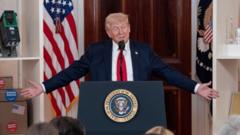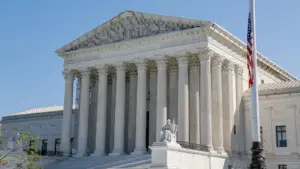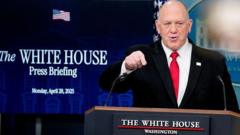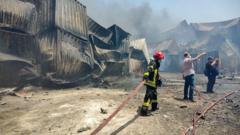In a recent development, Iran's Foreign Minister Abbas Araghchi expressed the country's willingness to engage in nuclear talks with the United States, conditional upon an assurance from President Trump that military options would not be pursued.
Iran Seeks Nuclear Agreement, Demands End to U.S. Threats

Iran Seeks Nuclear Agreement, Demands End to U.S. Threats
Tehran ready for negotiations contingent on the U.S. halting military coercion, amidst escalating nuclear tensions.
Iran has indicated readiness to negotiate over its nuclear program in meetings scheduled for Saturday in Oman, but insists that U.S. military threats must cease. Araghchi stated that the talks would remain indirect, countering Trump's announcement of direct discussions.
President Trump, who withdrew the U.S. from the 2015 nuclear agreement, warned that failure to reach a deal could put Iran in "great danger." Communication has been limited as the two countries lack diplomatic relations; recently, Trump reportedly sent a letter to Iran's Supreme Leader via the UAE, seeking to prevent nuclear armament.
While Iran maintains that its nuclear pursuits are peaceful, it continues to breach limits of the existing agreement as a response to renewed sanctions. The standoff has raised international concerns, with uranium stockpiles reportedly reaching nearly enough for multiple weapons.
Araghchi articulated Iran's distrust of U.S. negotiations, citing the "maximum pressure" sanctions and emphasizing that the nation would not yield to forceful impositions. He asserted that the U.S. must demonstrate sincere diplomatic intentions by adhering to agreements and respecting Iran's autonomy.
The stakes have risen as both sides prepare for a weekend meeting that could reshape the nuclear landscape; however, Iran has made it clear that dismantling its nuclear capabilities is non-negotiable. The outcome of the talks could result in either renewed dialogue or escalated tensions if an agreement is not reached.
President Trump, who withdrew the U.S. from the 2015 nuclear agreement, warned that failure to reach a deal could put Iran in "great danger." Communication has been limited as the two countries lack diplomatic relations; recently, Trump reportedly sent a letter to Iran's Supreme Leader via the UAE, seeking to prevent nuclear armament.
While Iran maintains that its nuclear pursuits are peaceful, it continues to breach limits of the existing agreement as a response to renewed sanctions. The standoff has raised international concerns, with uranium stockpiles reportedly reaching nearly enough for multiple weapons.
Araghchi articulated Iran's distrust of U.S. negotiations, citing the "maximum pressure" sanctions and emphasizing that the nation would not yield to forceful impositions. He asserted that the U.S. must demonstrate sincere diplomatic intentions by adhering to agreements and respecting Iran's autonomy.
The stakes have risen as both sides prepare for a weekend meeting that could reshape the nuclear landscape; however, Iran has made it clear that dismantling its nuclear capabilities is non-negotiable. The outcome of the talks could result in either renewed dialogue or escalated tensions if an agreement is not reached.






















